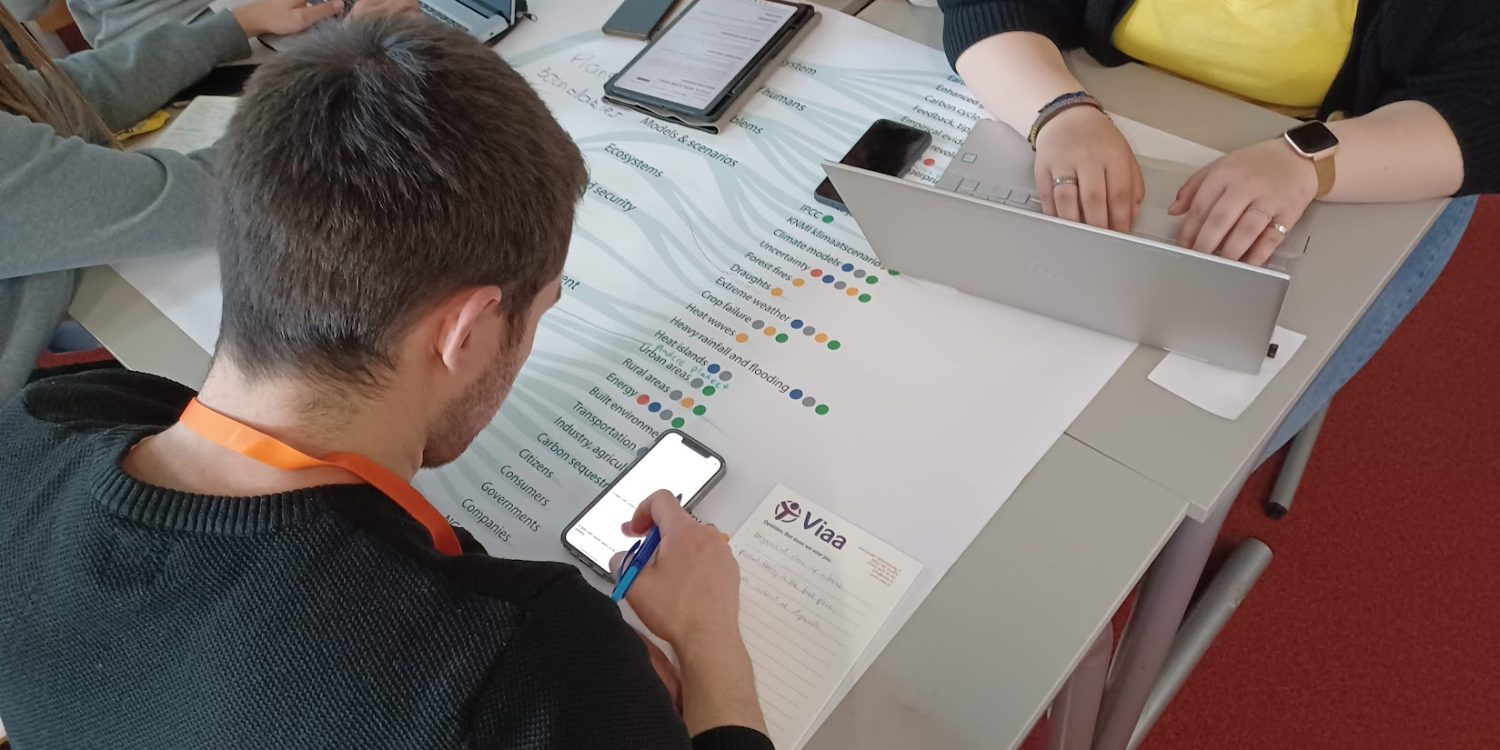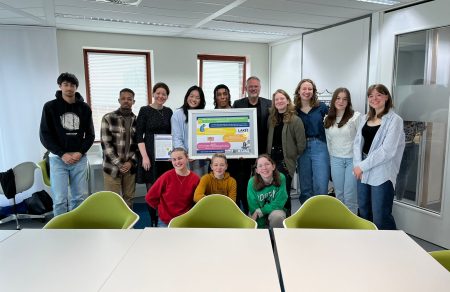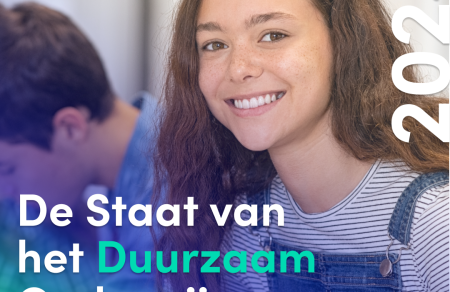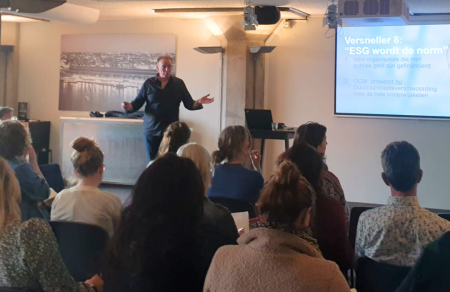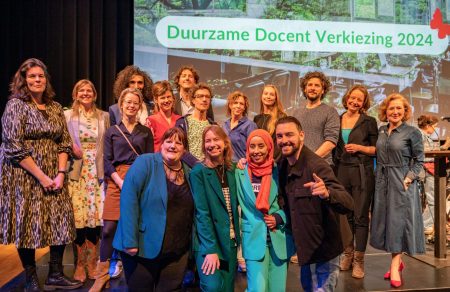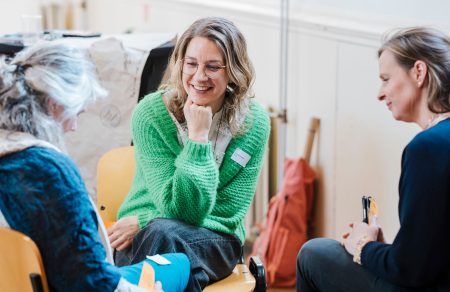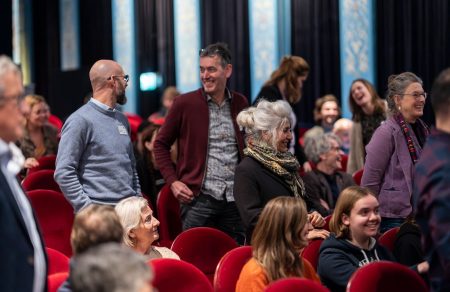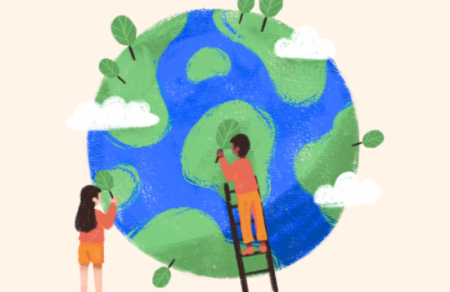It has been five years when his infant son is born. Where he has long been concerned about the way we treat the earth, he now wakes up with the urge to take action. His goal: a livable future; not just his son, but for all future generations. But how do you tackle that? Van Vugt: "I am taking climate action with Extinction Rebellion and Fossil-Free Netherlands. At the same time, I realized that I spend most of my time at work. The question occurred to me how I can also commit to a sustainable world in my work as a teacher educator."
Priority for sustainability?
"I came in contact with my colleague Peter Duifhuis, who was already had developed a course on sustainability and had taken on a kind of ambassador role internally. We shared the view that sustainability should be a spearhead within our Institute Archimedes" he says. After a successful plea, it was decided to include sustainability as a spearhead at the University of Applied Sciences Utrecht, which included the Institute Archimedes.
Van Vugt: "I contacted Learning for Tomorrow. They made a small grant available at that time for schools to work on a vision for embedding sustainability in education." Unfortunately, the process of developing a vision together went more slowly than hoped; sustainability was not a high priority at that time compared to other spearheads within the institute. Peeters explains: "Sustainability always had and has always had our attention, only there was so much to do, such as a curriculum review in the bachelor. We temporized it then so as not to run everything at once." In terms of timing, the vision formation seemed to have come too early to work toward truly embedding learning for sustainable development.
"Hope is in action and coalition gives strength"
Despite the frustration he felt as a result, Felix did not allow himself to be discouraged from working on sustainability education and staying in conversation with the institute. Together with colleague Niels de Boer, whom with a broad smile he also calls his "climate guy," he started an initiative to convey the urgency even more in the entire college. They were looking for allies who find sustainability education just as crucial to educating students in a rapidly changing world.
Van Vugt: "Sometimes the gloom I feel because of climate issues is overwhelming. But hope is in action. Coalition building thereby gives strength to persevere, because then you notice that others feel the same way." With 45 teachers, from 21 institutions, they wrote a fire letter to the University of Applied Sciences. In it they indicated that sustainability is not yet structurally integrated into educational practice. According to Peeters a nice step, because there was a need for concretization. The teachers want to get to work immediately to train students as change agents for a sustainable and just society. To do that, backing from the board and inclusion of the Sustainable Development Goals in the curriculum is needed.
A sharp target
The fire letter legitimized the sharp goal that was eventually set: by 2028, all of the college's programs will have sustainability in the core curriculum. This objective finds concreteness through various avenues. For example, a project on the Sustainable Development Goals (SDGs) in education is being worked on from the Knowledge and Innovation Agenda (KIA), which also paved the way for change at the institutes. Peeters: "The Archimedes Institute is now also taking the step to really put sustainability on the map, in line with the choices of Utrecht University of Applied Sciences and the course of the Knowledge and Innovation Agenda."
Today, they are working purposefully and with a strong sense of responsibility on the task at hand. This direction shows boldness and a strong sign of growth belonging to change processes. "A project has been started in which time and space is being freed up in all educational teams to give sustainability a place in the existing curricula" says Peeters. In addition to embedding it in the curriculum, they are looking at how to realize deeper choice offerings for sustainability education; how to teach students to deal with disinformation; how to professionalize teachers; and how to connect from the teacher training program to the educational field to strengthen the process there.
We are going on a bear hunt
Van Vugt hopes that sharing his experience will inspire others to start the movement in their schools. "We are in a crisis situation and these times demand different things from young people. We have a duty to train them for the future and the current training framework does not fit that." In doing so, he wants to give them the courage to continue even with the resistance they may experience. "I always read to my little son from the book 'We're going on a bear hunt.' Along the way, the main characters encounter new obstacles all the time. From swirling rivers to dark forests: they can't pass; can't pass under; and can't cross. But then what do you do? Then you go right through them."
In collaboration with: Felix van Vugt and Edith Peeters
